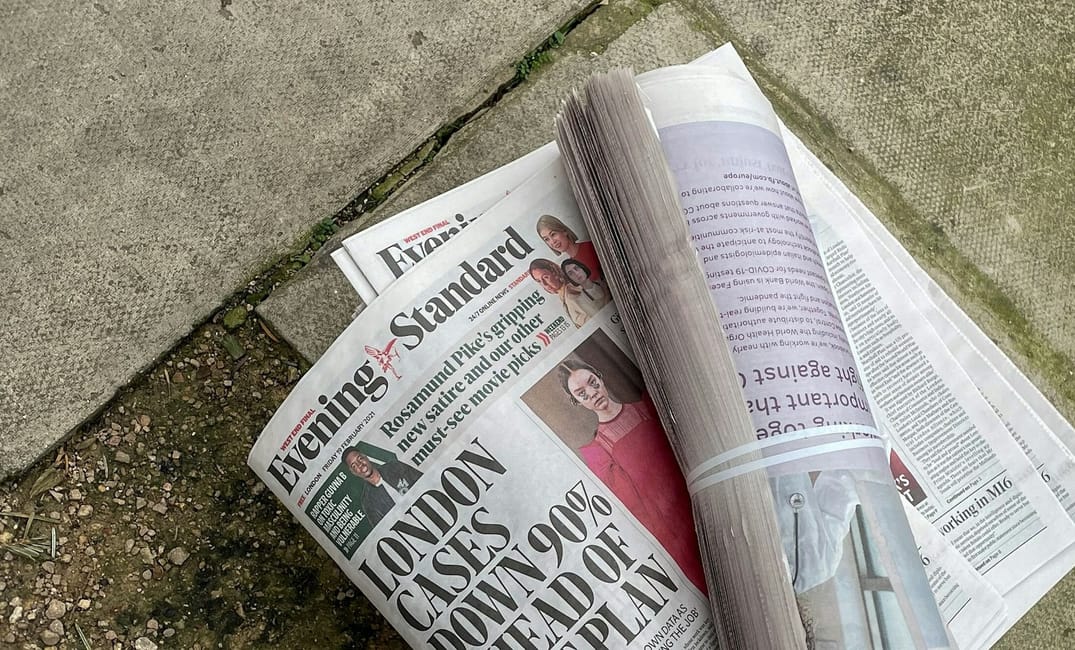Joe Blackburn: @JoeBlackburn42
Last week’s article spent quite a lot of time looking into what our five media organisations were writing. We mainly concluded that the biased organisations have a tendency to attack their opponents rather than supporting the people they want to win, and this was seen across the political spectrum, from the Sun’s daily attacks on Corbyn to the Independent’s scathing analysis of Conservative government policy.
This week, however, was marked by quite the opposite. Media writers and editors’ weeks were marked by a lack of negative coverage of the sides they oppose. In this particular article, I’ll look at both blatant and minor examples of bias by exclusion, and discuss exactly how it could have a huge impact on the election.
A Tale of Two Parties – Laura Kuenssberg, 19/11/19

On the morning of the 19th, the BBC’s Political Editor Laura Kuenssberg posted a tweet informing her followers that a Tory candidate had been suspended, along with a Labour Party chair resigning. At face value, the two stories seem to be of roughly equal significance, perhaps the Labour story could be seen as worse as it was linked in the tweet.
However, if you dig beneath the surface of the two stories, Kuenssberg’s choice of language becomes quite questionable. The Conservative candidate was suspended for discussing holocaust denial conspiracies, whilst the Labour chair left due to disagreements with the leadership and their choice of candidate for the area. In this situation, the Conservative candidate’s comments are significantly more newsworthy, as the situation is more severe and voters in that constituency need to know who they are voting for and what their views are.

This is a case of bias by omission. As the most important information in the situation was left out, undecided voters may have this presented as something of a false equivalency. In fact, one such voter replied saying that “our two main parties are morally bankrupt.” They may have already held the views noted in the tweet but the Political Editor’s tweet presents a “both sides are as bad as each other” view, which is questionable to say the least given the context. The bias may not even necessarily be a conscious one – I accept that I personally am biased towards the Labour Party as an activist myself – however these unconscious biases need to be challenged so that ideal journalistic principles can be upheld.

Poll-itely Ignoring Voter Intentions
Whilst there are these unconscious biases within some of the media, some information is often left aside by entire organisations, in this case specifically polls being mostly kept out of left-wing outlets.
There’s no doubt that the Conservative Party are vastly outstripping the Labour Party, by an average of around 10 points in the run up to the General Election. This is a gap that has shown signs of shrinking, but in the case that voters are on the fence and need persuading to vote in the direction that the Guardian and Independent support, seeing polls saying there is almost no chance that their vote will make a difference could put them off voting entirely.
You’ll often find people who almost look at polls as conspiracies, designed to guide opinion rather than presenting current opinions. There’s an old adage that there are “lies, damned lies and statistics”, and with manipulation of variables it’s true that a significant change can be made in what the data says (for example a Kantar poll this week came under scrutiny for it’s expected turnouts being significantly different to 2017) so the theories could be true to a certain extent. In any case, seeing a poll that has a headline with the Conservative Party 18 points ahead would potentially put off a lot of prospective voters, so the Independent and Guardian choose not to give polling stories as much of a platform as the right-wing alternatives do.

Ultimately, as much as a media outlet’s output can have an impact on voters, what they refuse to show can be just as important. Right-wing outlets are less likely to show Boris Johnson’s gaffes on the campaign trail, and left-wing outlets will give less space to pieces that might call Labour policy unworkable. Next time you see a newspaper with very little discussion of one Party, take a look at the competition to get a more accurate picture of what’s really happening.
As this piece is being written very shortly before the first debate, next week’s article will focus on the outlets’ analysis of election debates, and how they’re likely to pump up their own favoured candidates (even if they were frankly a bit naff).

